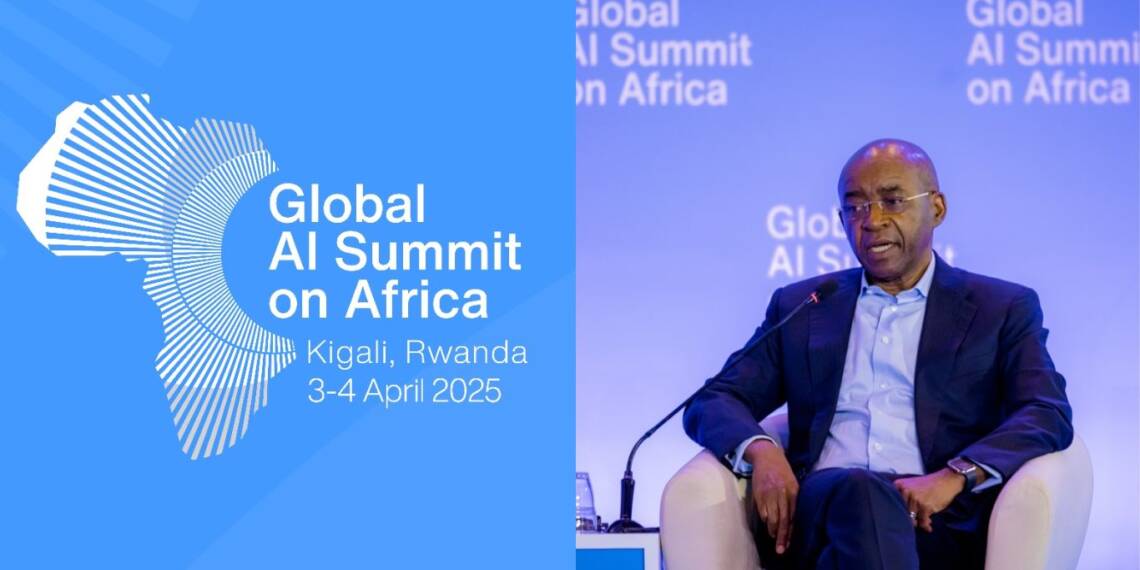A new global race is on. Not just in geopolitics or military power but in technology – and at the heart of it is artificial intelligence (AI). Across continents, governments, tech firms, and investors are racing to gain a lead. Africa, too, is entering this race. Slowly but surely, the continent is shifting gears. The two-day summit on April 3 and 4 convenes political leaders, tech experts, and investors to discuss Africa’s role in the artificial intelligence (AI) economy held in Kigali, Rwanda, might just be the turning point.
The Africa AI summit, co-hosted by the Centre for the Fourth Industrial Revolution and the World Economic Forum (WEF), brought together political leaders, investors, and tech experts under one key theme: “AI and Africa’s Demographic Dividend.” The message was clear – Africa is home to the world’s fastest-growing and youngest workforce. It cannot afford to be a passive observer in the AI era. It must lead.
AI is not just another wave of innovation. It is a multiplier. It promises to transform healthcare, agriculture, education, governance, and job creation. However, without the right infrastructure and strategy, existing gaps could widen.
Africa has largely missed the early AI boom. The reasons are many – low access to computing power, high hardware costs, fragmented data systems, and weak local AI ecosystems. According to Zindi, only 5% of AI practitioners across 52 African countries have regular access to the computing power needed for innovation. It’s not just a tech problem. It’s a development problem.
But change is coming. And it’s coming fast.
Last week, Cassava Technologies, founded by Zimbabwean telecoms billionaire Strive Masiyiwa, announced it would build Africa’s first AI factory, in partnership with global AI chip leader Nvidia. These GPU-powered supercomputers will be deployed at Cassava’s data centers in South Africa by June, and later in Egypt, Kenya, Morocco, and Nigeria. This is the first real step towards local AI infrastructure in Africa.
Today, African AI developers often rely on cloud services from Amazon, Microsoft, and Google – expensive and slow, especially with weak internet infrastructure. Some of Nvidia’s high-end GPUs cost up to $40,000. In Kenya, that’s roughly 75% of the GDP per capita – 31 times more expensive than in Germany, relatively speaking. For many African innovators, this has made serious AI development impossible.
That’s why Cassava’s move matters. It’s a “game-changer,” says Celina Lee, CEO of Zindi. Local access to GPUs will lower costs, reduce latency, and offer faster tools for AI builders. It’s not just about speed – it’s about independence.
AI will also help balance the scales in global datasets. Currently, African languages, dialects, and faces are underrepresented**. Biases in facial recognition or language processing systems are often traced back to skewed training data. With local infrastructure, African innovators can build and train models using their own data, for their own people.
Yet, major challenges remain. As Alex Tsado, founder of Alliance4AI, points out – unreliable power grids still threaten large tech installations. Many users still run AI models on low-grade smartphones with poor internet access. The digital divide within Africa is as real as the one between Africa and the rest of the world.
Still, Kigali’s summit signals a new era. AI is no longer seen as an imported luxury. It is becoming a development necessity.
A report by the Tony Blair Institute for Global Change (TBI) – “Governing in the Age of AI” – argues that AI can accelerate African growth without dependency on aid or outdated infrastructure. AI could power diagnostics in rural clinics, optimize food supply chains, automate public services, and root out inefficiencies in government systems.
But this won’t happen on its own.
Africa must build strong foundational systems – high-performance computing, interoperable data systems, and strong digital public infrastructure (DPI). These must be AI-native from the ground up. Without DPI, AI will remain a castle built on sand.
Data governance is equally critical. Much of Africa’s valuable data – in health, finance, or agriculture – is processed abroad. The continent contributes to global AI breakthroughs but sees little return. Strategic control over local data must be a priority. This means building local research capacity, setting fair data-sharing rules, and ensuring AI reflects Africa’s priorities, not foreign interests.
Talent is Africa’s greatest asset. With the largest youth population globally, the continent has what it takes to lead. But AI education remains low. Research funding is also low. Governments must act. AI literacy must begin in schools, scale through universities, and mature through industry training. Public-private partnerships, AI-focused investment funds, and incentives for global tech firms can speed this up.
The public sector could be the biggest winner. From smarter tax systems to automated city planning, AI can make African governance faster, fairer, and more transparent. But it must be ethical. Without strong laws and oversight, AI could also deepen inequality and erode trust.
Africa must write its own AI rules. It cannot rely on frameworks made elsewhere. It must lead with its own vision, its own priorities.
This week’s summit in Kigali may be the moment the tide turned. Not just in conversation but in action. As TBI notes, AI is not optional. It’s foundational. Governments that delay risk being left behind. But those that lead now can shape the future.
Africa doesn’t have to do it alone. Innovative financing models, sovereign AI funds, and international collaboration can support this transformation. But the first step must come from within.
The world is moving fast. So must Africa. The AI race is on – and this time, the continent must not miss the train.








